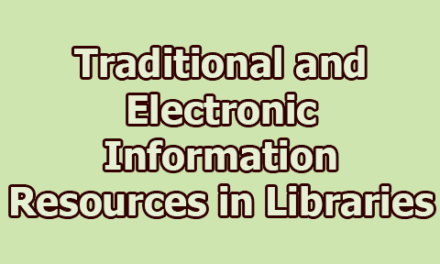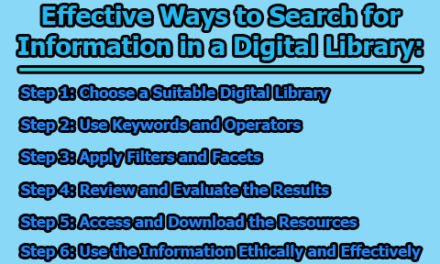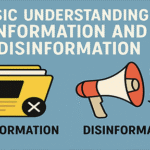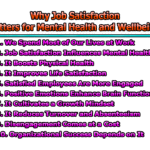Unlocking Academic Potential with the Library’s Gateway to Success:
In the digital age, where information is at our fingertips, the role of traditional libraries may seem diminished. However, far from being obsolete, libraries continue to serve as vital gateways to academic success. Beyond their conventional role as repositories of books, libraries have transformed into dynamic hubs that offer a plethora of resources and services. In this article, we will explore unlocking academic potential with the library’s gateway to success.
Section 1: The Evolution of Libraries:
Libraries have undergone a substantial transformation, adapting to the digital age and redefining their role in education.
1.1 Digital Resources and Online Databases: The integration of digital resources and online databases has revolutionized access to information. Libraries now provide students with a wealth of e-books, academic journals, and multimedia content, transcending the limitations of traditional print materials. For example, platforms like JSTOR and ProQuest grant students access to an extensive range of scholarly articles and research materials.
This shift aligns with the evolving nature of academic research, emphasizing the importance of digital literacy and the ability to navigate online databases. The accessibility of these resources expands the horizons of students, enabling them to explore diverse perspectives and deepen their understanding of subjects beyond what physical collections may offer.
1.2 Collaborative Spaces and Technology Infrastructure: Modern libraries have transformed into collaborative spaces equipped with cutting-edge technology infrastructure. High-speed internet, computers, and multimedia equipment are now integral components of library spaces, facilitating group projects, discussions, and knowledge-sharing. The emergence of collaborative technologies such as virtual reality and interactive displays enhances the learning environment within libraries.
Collaborative spaces promote a sense of community and intellectual exchange. The availability of such facilities aligns with the changing dynamics of education, emphasizing the importance of collaborative and interactive learning experiences in fostering critical thinking and problem-solving skills.
Section 2: Academic Support Services:
Libraries offer a spectrum of academic support services, ranging from research assistance to specialized workshops, designed to enhance students’ learning experiences.
2.1 Research Assistance and Information Literacy: Librarians play a crucial role in guiding students through the intricacies of research, providing personalized assistance in navigating online databases and evaluating sources. The Association of College & Research Libraries (ACRL) emphasizes the importance of information literacy, defining it as “the set of integrated abilities encompassing the reflective discovery of information, the understanding of how information is produced and valued, and the use of information in creating new knowledge and participating ethically in communities of learning”.
Librarians contribute not only to the acquisition of information but also to the development of critical thinking and analytical skills, essential components of academic success. Through one-on-one consultations and workshops, they empower students to become discerning consumers and producers of knowledge.
2.2 Workshops and Training Programs: Libraries organize workshops and training programs to address various aspects of academic life. These sessions cover topics such as research methodologies, citation styles, and effective study techniques. The goal is to equip students with practical skills and strategies that extend beyond the confines of traditional classroom instruction.
These workshops align with the broader educational goals outlined in the ACRL’s Information Literacy Framework, emphasizing the importance of engaging with information ethically and critically. By providing students with the tools to navigate the complexities of academic research, libraries contribute to their academic preparedness and overall success.
Section 3: The Role of Libraries in Fostering a Culture of Learning:
Libraries go beyond being repositories of information; they actively cultivate a culture of learning through various initiatives.
3.1 Reading Programs and Literary Events: Libraries organize reading programs and literary events to foster a love for literature and lifelong learning. These initiatives contribute to the overall academic experience by encouraging students to engage with diverse literary genres and authors. Book clubs, author talks, and literary festivals hosted by libraries create an environment that celebrates the joy of reading and intellectual exploration.
Such programs align with the belief that exposure to a wide range of literature enhances critical thinking, empathy, and cultural awareness. The American Library Association (ALA) emphasizes the role of libraries in promoting intellectual freedom and providing access to diverse ideas, ensuring that reading programs contribute to a well-rounded education.
3.2 Cultural and Educational Exhibitions: Libraries curate cultural and educational exhibitions that showcase a variety of topics, from history and science to art and technology. These exhibitions serve as interactive learning spaces, stimulating intellectual curiosity and encouraging students to explore subjects beyond their academic curriculum.
The ALA underscores the importance of libraries as community hubs that provide free access to information and educational opportunities. Cultural and educational exhibitions exemplify this commitment by offering students a chance to engage with knowledge in innovative and experiential ways, fostering a deeper appreciation for various disciplines.
Section 4: Libraries as Spaces for Personal and Professional Development:
Libraries extend their role beyond academic support, contributing to students’ personal and professional development.
4.1 Career Resources and Guidance: Many libraries provide comprehensive career resources and guidance to assist students in navigating the transition from academia to the professional world. Workshops on resume-building, interview skills, and career counseling sessions equip students with the tools necessary for success in the job market.
The International Federation of Library Associations and Institutions (IFLA) emphasizes the role of libraries in supporting lifelong learning and providing access to information for personal development. Career resources within libraries align with this broader mission, ensuring that students are well-prepared for their future professional endeavors.
4.2 Entrepreneurship and Innovation Hubs: Libraries increasingly serve as hubs for entrepreneurship and innovation. By offering resources for aspiring entrepreneurs, including business literature, mentorship programs, and networking events, libraries contribute to fostering a culture of innovation and creativity.
The American Library Association recognizes libraries as essential partners in economic and community development. Entrepreneurship and innovation hubs within libraries reflect this commitment by providing a supportive environment for students to explore and develop their entrepreneurial aspirations.
Section 5: The Inclusive Nature of Libraries:
Libraries embody principles of inclusivity and equal access to knowledge, ensuring that all students can benefit from their resources and support.
5.1 Accessibility Services: Libraries prioritize accessibility by offering services tailored to diverse needs. This includes resources for differently-abled individuals, accommodations for various learning styles, and support for students facing financial challenges.
The Universal Declaration on Archives emphasizes the importance of ensuring that archives and libraries are accessible to all, promoting inclusivity and equal access to cultural and educational resources. By prioritizing accessibility services, libraries contribute to creating an inclusive learning environment.
5.2 Community Outreach Programs: Libraries actively engage with their communities through outreach programs, extending their services beyond campus boundaries. These initiatives may include partnerships with local schools, literacy programs, and collaborative projects that contribute to the broader educational ecosystem.
The ALA recognizes community engagement as a core value of librarianship, emphasizing the role of libraries as essential community resources. Through community outreach programs, libraries strengthen their connection with diverse populations, ensuring that their services are accessible and responsive to the needs of the broader community.
Section 6: Leveraging Emerging Technologies for Enhanced Learning:
Libraries are at the forefront of incorporating emerging technologies to enrich the learning experience. Virtual and augmented reality applications, interactive learning modules, and online tutorials are increasingly integrated into library services. For instance, the use of virtual reality (VR) in educational settings has shown promise in creating immersive learning environments, allowing students to explore historical sites, conduct virtual experiments, or engage in simulations that enhance their understanding of complex concepts.
The American Library Association recognizes the pivotal role of libraries in providing access to emerging technologies, emphasizing their potential to democratize knowledge and enhance educational opportunities. By embracing these technologies, libraries contribute to the development of innovative learning methodologies that cater to diverse learning styles, ensuring that students are well-prepared for the demands of the digital age.
Section 7: Data Literacy and Research Analytics Support:
In the age of big data, libraries play a crucial role in fostering data literacy among students. They provide resources and workshops that empower students to navigate, analyze, and interpret data effectively. Librarians collaborate with academic departments to offer support in research analytics, helping students make informed decisions based on robust data analysis.
The Association of College & Research Libraries (ACRL) emphasizes the importance of integrating data literacy into the academic curriculum, recognizing it as a fundamental skill for success in today’s information-driven society. Libraries, through their data literacy initiatives, contribute to the development of a generation of students equipped to critically engage with and leverage data for academic and professional pursuits.
Section 8: Global Learning Initiatives and International Collaboration:
Libraries actively engage in global learning initiatives, recognizing the importance of fostering an international perspective among students. Many libraries establish partnerships with institutions around the world, facilitating cultural exchanges, collaborative research projects, and access to diverse global resources. These initiatives contribute to the development of a global mindset, preparing students to navigate an interconnected world.
The International Federation of Library Associations and Institutions (IFLA) advocates for libraries as key players in promoting international understanding and cooperation. Through global learning initiatives, libraries support students in developing cross-cultural competencies, enhancing their ability to thrive in an increasingly interconnected and diverse global landscape.
Section 9: Mental Health and Wellness Resources:
Libraries recognize the importance of supporting students’ mental health and well-being. Many libraries now offer resources and programs focused on stress reduction, mindfulness, and overall mental wellness. Quiet spaces for reflection, access to meditation resources, and partnerships with counseling services contribute to creating a holistic environment that addresses not only academic needs but also the emotional well-being of students.
The American Library Association underscores the role of libraries in promoting well-being as part of their commitment to the overall welfare of individuals. By incorporating mental health resources into their offerings, libraries contribute to creating a supportive and inclusive educational environment that acknowledges the holistic needs of students.
Section 10: Sustainable Education and Environmental Awareness:
Libraries play a role in promoting sustainable education and environmental awareness. Initiatives include collections on environmental topics, workshops on sustainability, and partnerships with local organizations focused on environmental conservation. Libraries contribute to creating environmentally conscious citizens by fostering a sense of responsibility and understanding of the interconnectedness between education and the environment.
The United Nations Educational, Scientific and Cultural Organization (UNESCO) recognizes libraries as essential players in promoting sustainable development. By incorporating environmental initiatives, libraries align with global efforts to educate individuals about environmental challenges and inspire sustainable practices in education and beyond.
In conclusion, libraries stand as vibrant and dynamic hubs that go beyond the traditional role of information repositories. They serve as catalysts for academic success by leveraging technology, fostering a culture of learning, and promoting inclusivity. From providing cutting-edge resources and academic support services to facilitating personal and professional development, libraries remain essential in unlocking the full potential of students. As they adapt to emerging trends and address diverse needs, libraries continue to be the cornerstone of educational ecosystems, guiding individuals on their academic journey and preparing them for the challenges and opportunities of a rapidly evolving world.
References:
- (2022). https://www.proquest.com/
- Association of College & Research Libraries. (2016). Framework for Information Literacy for Higher Education.
- Johnson, L., Adams Becker, S., Estrada, V., & Freeman, A. (2015). NMC/CoSN Horizon Report: 2015 Higher Education Edition. New Media Consortium.
- American Library Association. (2014). Libraries Transforming Communities: Models for Change.
- International Federation of Library Associations and Institutions. (2017). IFLA Guidelines for Continuing Professional Development: Principles and Best Practices.
- International Federation of Library Associations and Institutions. (2019). IFLA Strategy 2019–2024: Global Vision.
- International Council on Archives. (2013). Universal Declaration on Archives.
- American Library Association. (2015). Core Values of Librarianship.
- Dalgarno, B., Gregory, S., & Carlson, L. (2014). Learning in Virtual Worlds: A Review of the Research.
- United Nations Educational, Scientific and Cultural Organization. (2015). Sustainable Development Goals: Goal 4 – Quality Education.

Assistant Teacher at Zinzira Pir Mohammad Pilot School and College

